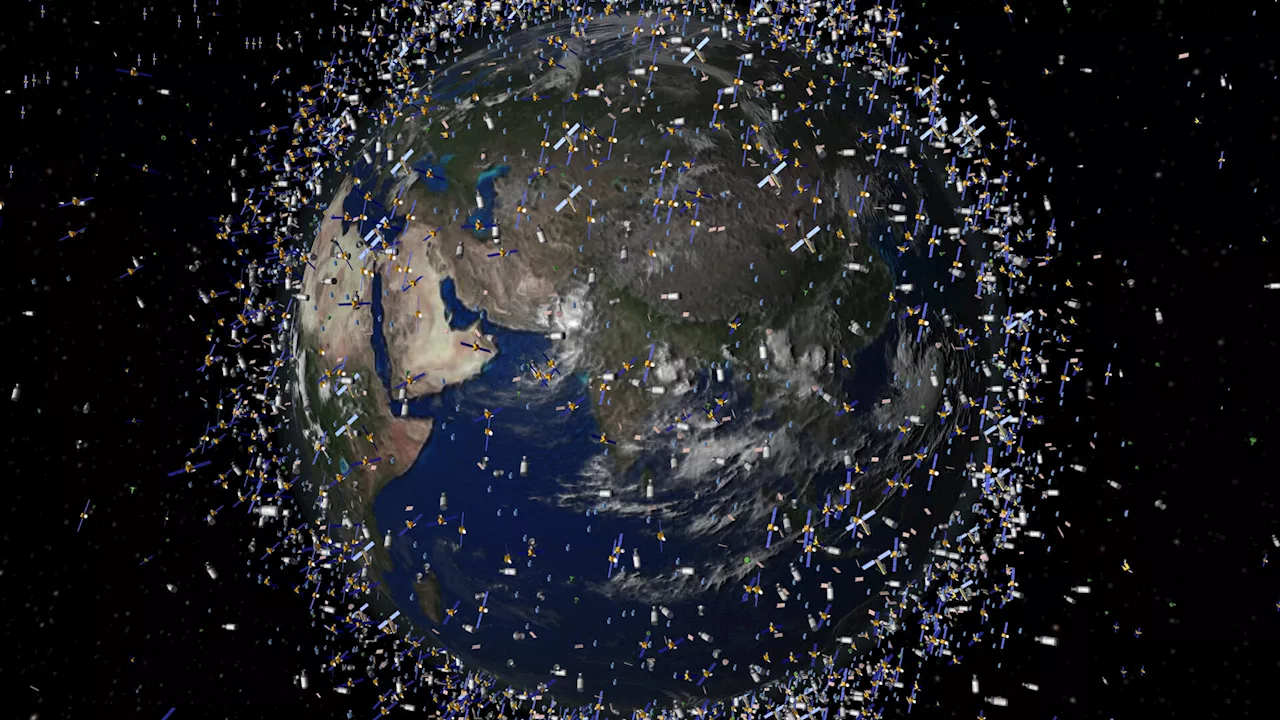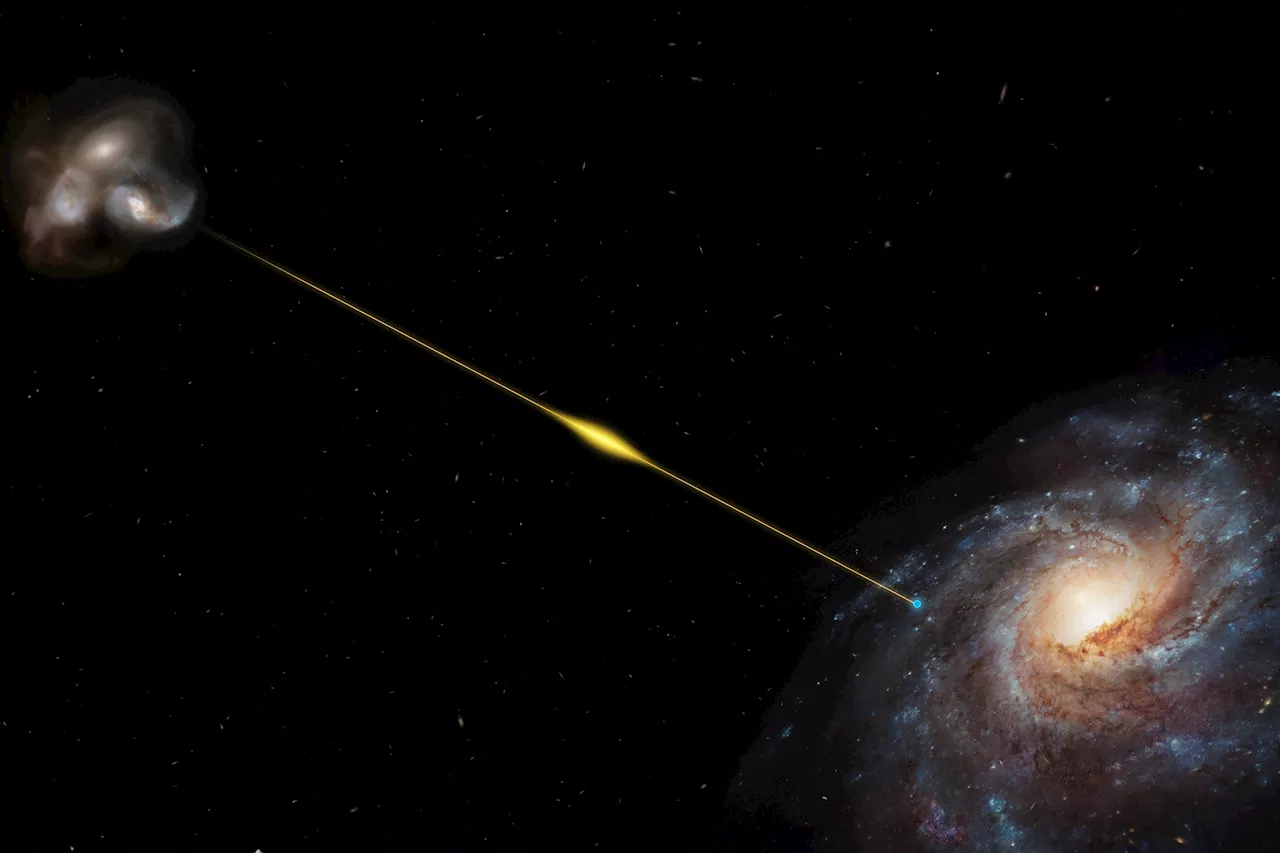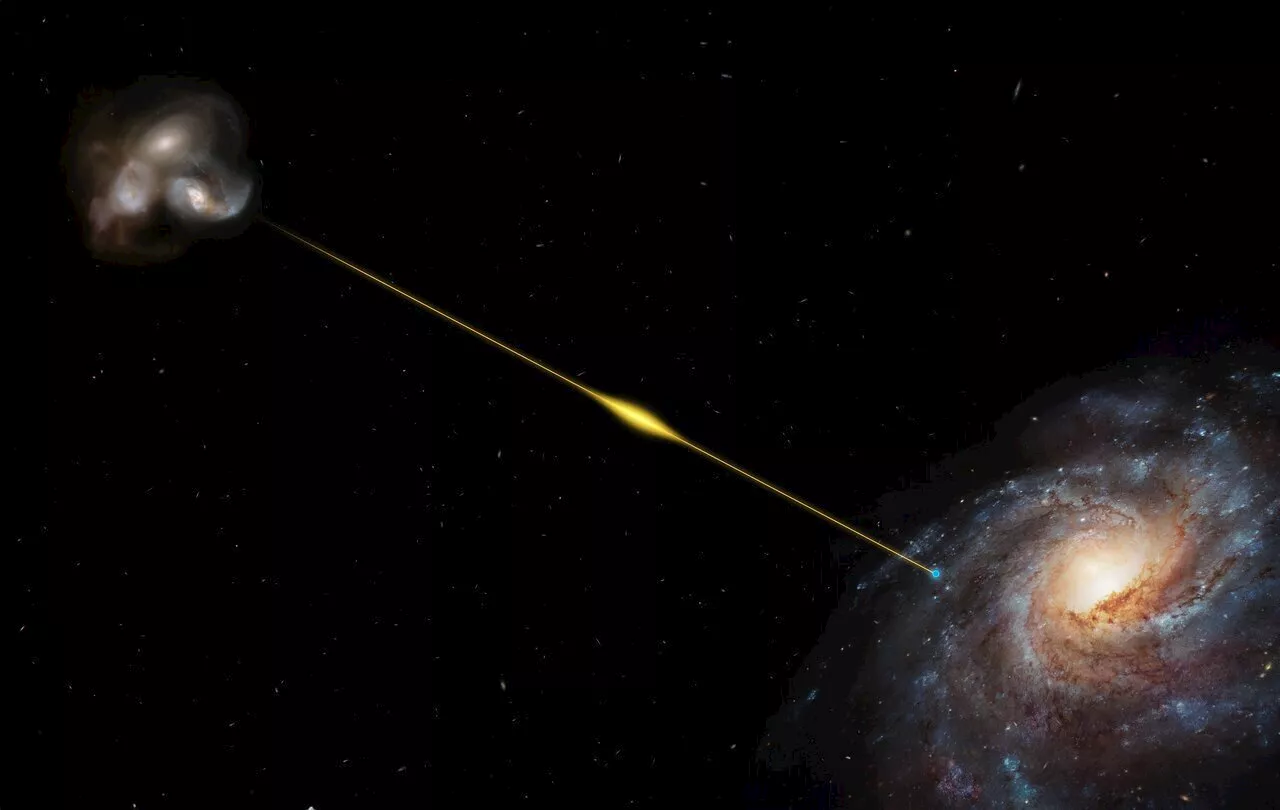An international team has spotted a remote blast of cosmic radio waves lasting less than a millisecond. This 'fast radio burst' (FRB) is the most distant ever detected. Its source was pinned down by the European Southern Observatory's (ESO) Very Large Telescope (VLT) in a galaxy so far away that its light took 8 billion years to reach us.
retrieved 19 October 2023 from https://phys.org/news/2023-10-astronomers-distant-fast-radio-date.html
This document is subject to copyright. Apart from any fair dealing for the purpose of private study or research, no part may be reproduced without the written permission. The content is provided for information purposes only.Use this form if you have come across a typo, inaccuracy or would like to send an edit request for the content on this page. For general inquiries, please use ourThank you for taking time to provide your feedback to the editors.
Your feedback is important to us. However, we do not guarantee individual replies due to the high volume of messages.to let the recipient know who sent the email. Neither your address nor the recipient's address will be used for any other purpose. The information you enter will appear in your e-mail message and is not retained by Phys.org in any form.Get weekly and/or daily updates delivered to your inbox.
This site uses cookies to assist with navigation, analyse your use of our services, collect data for ads personalisation and provide content from third parties. By using our site, you acknowledge that you have read and understand our
Norge Siste Nytt, Norge Overskrifter
Similar News:Du kan også lese nyheter som ligner på denne som vi har samlet inn fra andre nyhetskilder.
 Astronomers could 'lose access' to the stars due to bright satellitesInteresting Engineering is a cutting edge, leading community designed for all lovers of engineering, technology and science.
Astronomers could 'lose access' to the stars due to bright satellitesInteresting Engineering is a cutting edge, leading community designed for all lovers of engineering, technology and science.
Les mer »
 Astronomers Detect Mysterious Space Signal From 8 Billion Light-Years AwayThe incredibly powerful signal is the most ancient and distant fast radio burst discovered in the universe to date, according to researchers.
Astronomers Detect Mysterious Space Signal From 8 Billion Light-Years AwayThe incredibly powerful signal is the most ancient and distant fast radio burst discovered in the universe to date, according to researchers.
Les mer »
 New patterns in sun's layers could help scientists solve solar mysteryAstronomers are one step closer to understanding one of the most enduring solar mysteries, having captured unprecedented data from the sun's magnetic field.
New patterns in sun's layers could help scientists solve solar mysteryAstronomers are one step closer to understanding one of the most enduring solar mysteries, having captured unprecedented data from the sun's magnetic field.
Les mer »
 Bursting activity of magnetar SGR J1830–0645 observed with AstroSatUsing India's AstroSat spacecraft, astronomers have observed a magnetar known as SGR J1830–0645 during its recent bursting activity.
Bursting activity of magnetar SGR J1830–0645 observed with AstroSatUsing India's AstroSat spacecraft, astronomers have observed a magnetar known as SGR J1830–0645 during its recent bursting activity.
Les mer »
 These space-obsessed brothers are bringing a new attraction to South Street. It’s out of this world.Sidewalk astronomers Brendan Happe and Bill Green look to expand minds by reconnecting Philadelphians to the universe.
These space-obsessed brothers are bringing a new attraction to South Street. It’s out of this world.Sidewalk astronomers Brendan Happe and Bill Green look to expand minds by reconnecting Philadelphians to the universe.
Les mer »
